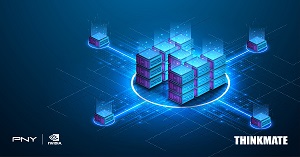Sponsored Post
Data volumes have been increasing for years – and researchers expect they will continue to increase in the coming years.
Meanwhile, edge computing, 5G-fueled hyperconnectivity, artificial intelligence (AI), and other new technologies we’ve been hearing about for years are becoming real solution realities, not research projects.
For these and many other reasons, organizations and the technologists that support them are being forced to reimagine the datacenter that is still the heart of most data-reliant organizations. Modern datacenters need to be ready for what’s next, ideally without downtime or unplanned costs.
From academia to aerospace/defense to finance to life sciences, and high-performance computing, standing still means quickly falling behind. You become less competitive in terms of innovation, mission execution, even attracting and retaining talent.
Fortunately, there is a solution many organizations can implement today that addresses many of these issues – building a datacenter that incorporates graphics processing unit (GPU) workload acceleration.
Why?
Its well-known that GPUs can accelerate deep learning, machine learning and high-performance computing (HPC) workloads. However, they can also improve performance of data-heavy applications. Virtualization allows users to take advantage of the fact that GPUs rarely operate anywhere near capacity. By abstracting GPU hardware from the software virtualization essentially right-sizes GPU acceleration for every task.
Also, many exciting new technologies are being built on GPUs or explicitly need the acceleration GPUs provide. While AI is certainly an example of this, the same highly-parallel mathematical operations that make GPUs so valuable for any algorithm that can exploit embarrassingly parallel approaches can also accelerate the most demanding hyperscale and enterprise data center workloads.
GPU-based infrastructure requires fewer servers, dramatically improves performance per Watt, and offers unrivalled performance. Consider, for example the 20x improvement of NVIDIA’s Ampere architecture over previous generations of GPUs due to numerous architectural innovations and transistor count increases. The cost of GPUs has been dropping in recent years while the hardware infrastructure and software stacks that can take advantage of them – both storage and compute – have been rapidly expanding. As a result, you can more accurately predict future performance capacity and, thus, the costs of potential workload expansion.
How?
GPUs are ideal parallel processing engines with high-speed memory with lots of bandwidth. They’re often more efficient and require less floor space than central processing units (CPUs), which traditionally have served as the performance driver of datacenters. To make the case for GPU adoption even stronger, GPU providers such as NVIDIA are pre-testing and bundling software necessary for workload execution.
Hardware infrastructure providers such as Thinkmate (Thinkmate.com) have spent the last several years ensuring clients of all kinds have access to the computing and storage technology they need to not just keep up but leapfrog competitors in the GPU-enabled datacenter era. Today, the options are greater than ever before.
You can get systems that generate massively parallel processing power and offer unrivaled networking flexibility. Choices include two double-width GPUs or up to 5 expansion slots in a 1U, for performance and quality that is optimized for the most computationally intensive applications. At the same time, thanks to GPU-experienced engineers, these unique designs come with Gold Level power supplies, energy-saving motherboards and enterprise class server management to optimize cooling for even the most demanding applications.
By working with experienced infrastructure providers with access to the latest technology and training to inform their system designs, organizations and their datacenter administrators can transform or augment existing datacenters to be more agile and performant without breaking the bank or shutting down operations.
To learn more about GPU-accelerated datacenters, join the upcoming live webinar from Thinkmate and PNY via this registration page. We’ll dive into the future of the datacenter, why the GPU is crucial, the technology behind GPU acceleration, and what sort of options exist for different industries or types of organizations.





